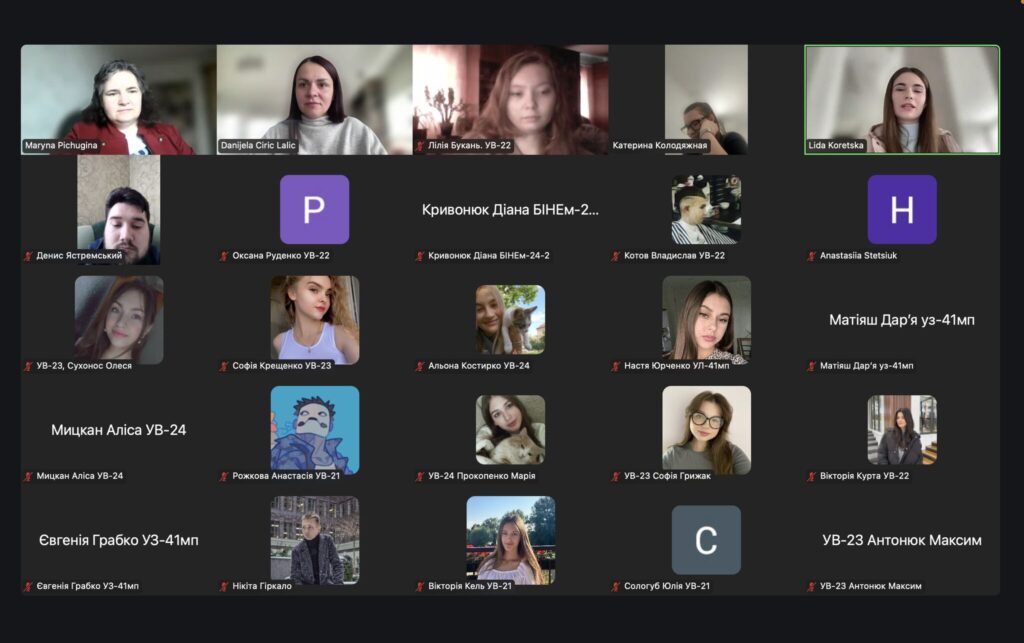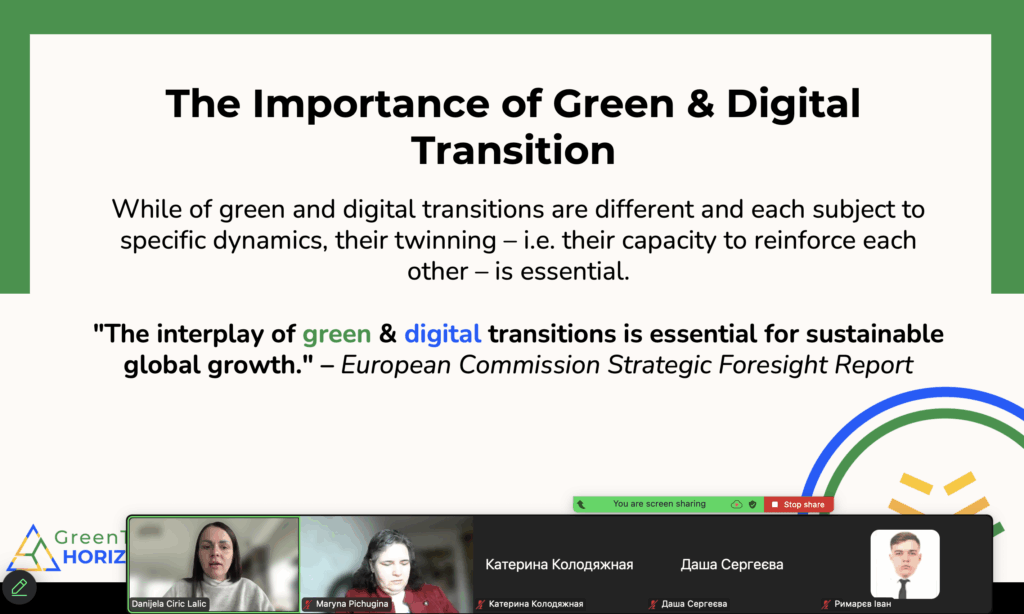Empowering a New Generation through Green and Digital Skills
In a dynamic guest lecture hosted by the National Technical University of Ukraine ‘Kyiv Polytechnic Institute’ (NTUU KPI), the GreenTech Horizons project was introduced to a broad academic and professional audience. Held within the international certificate program European Sustainable Competitiveness for Economic Resilience and Growth (ESC4ERG), the event explored how higher education can actively support green and digital transitions through curriculum innovation and strategic partnerships.
The lecture was part of the Jean Monnet Module ESC4ERG and was delivered in an online format, enabling over 60 participants—including students, faculty members, and policymakers—to engage with ideas that shape the future of work in a rapidly evolving labor market.


From Data to Action: A Competency-Driven Vision for Curriculum Reform
The presentation positioned GreenTech Horizons as a flagship Erasmus+ CBHE project focused on building green and digital competencies through higher education. Participants were introduced to the project’s regional scope—spanning Azerbaijan, Kazakhstan, Mongolia, and EU partner countries—and the methodology behind its research-driven approach.
Key elements discussed included:
- The State-of-the-Art Report methodology, combining labor market analysis, institutional surveys, interviews, and curriculum mapping;
- The development and application of the Twin Green & Digital Transition Competency Framework;
- Practical insights into how these findings guide curriculum modernization and laboratory upgrade plans in partner institutions;
- Identified skill gaps and institutional needs that inform new educational models aligned with emerging economic demands.
Participants appreciated the structured and analytical approach of the project, noting its potential to directly inform teaching materials, academic programs, and policy recommendations.
Connecting Academic Vision with Market Realities
The guest lecture underscored the crucial role of higher education institutions in supporting labor market transformation and developing future-ready graduates. Through real examples and case studies, participants explored how universities can become drivers of resilience and innovation by:
- Integrating green and digital skills into academic programs;
- Responding to regional development needs through collaborative research;
- Designing competency-oriented learning pathways that reflect real-world challenges.
Strong interest was expressed in the project’s ongoing activities, with participants eager to explore opportunities for deeper engagement through collaborative pilot initiatives, co-creation of teaching materials, and integration of the Twin Transition Competency Framework into existing academic structures. Many attendees emphasized the value of transforming research insights into tangible educational outcomes—such as new modules, interdisciplinary courses, and innovation-driven capstone projects.
The event fostered a vibrant and forward-thinking dialogue among students, researchers, and institutional stakeholders, who exchanged perspectives on the role of universities in shaping resilient, future-ready societies. This exchange of ideas reinforced a shared commitment to building sustainable competitiveness through evidence-based curriculum reform, international cooperation, and the strategic alignment of higher education with evolving labor market needs.

